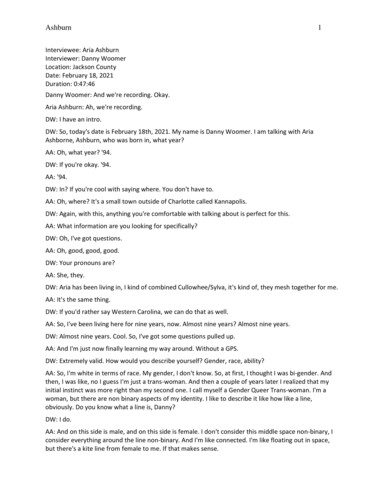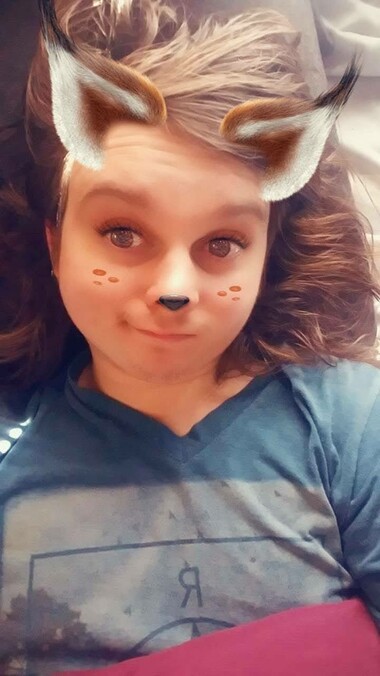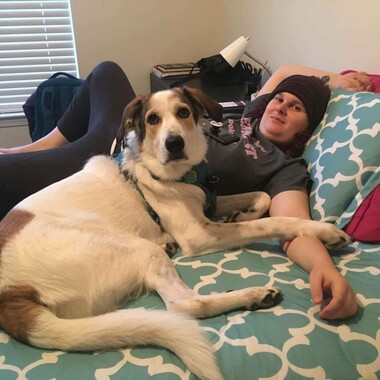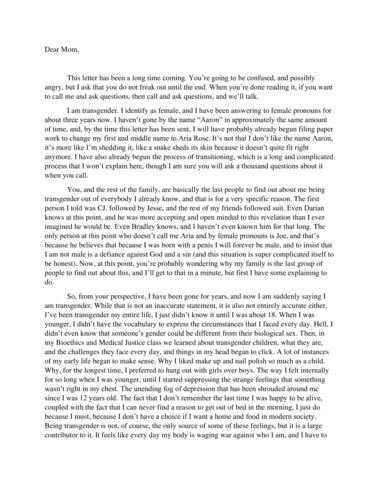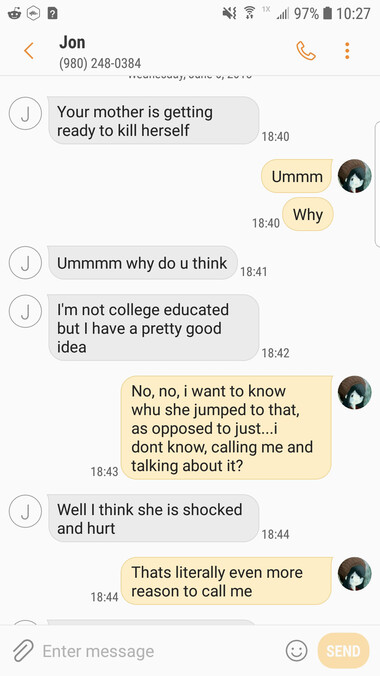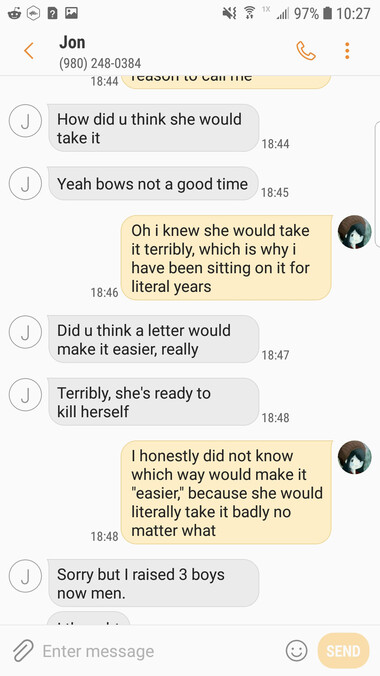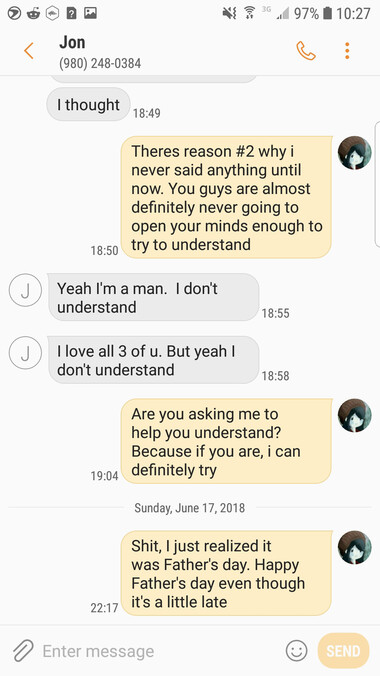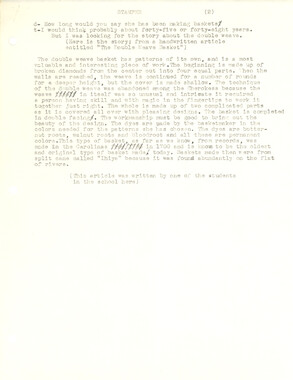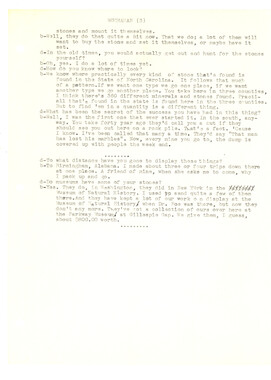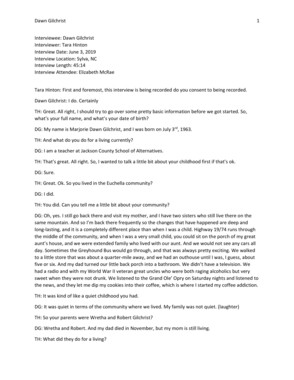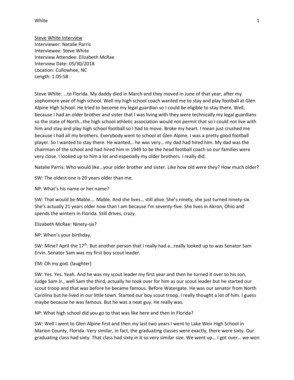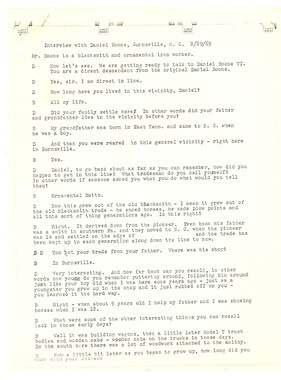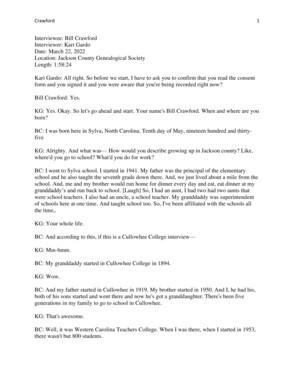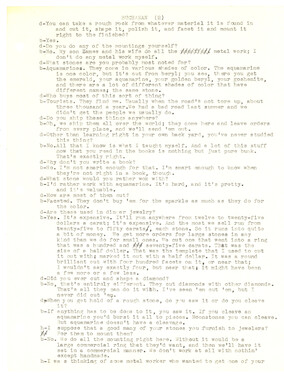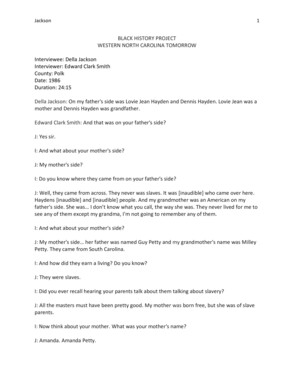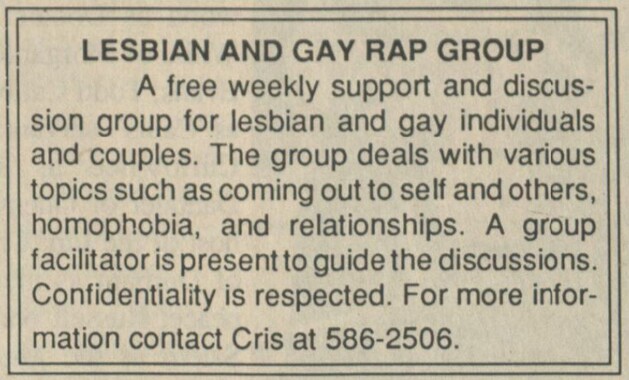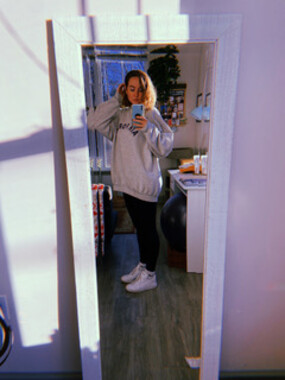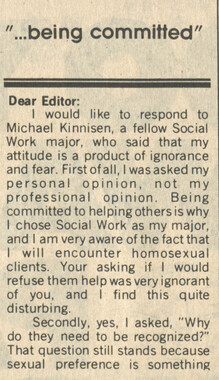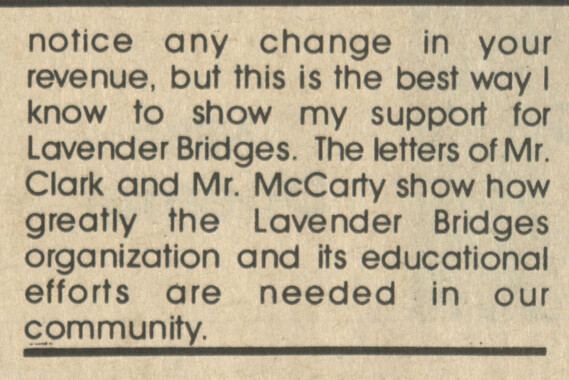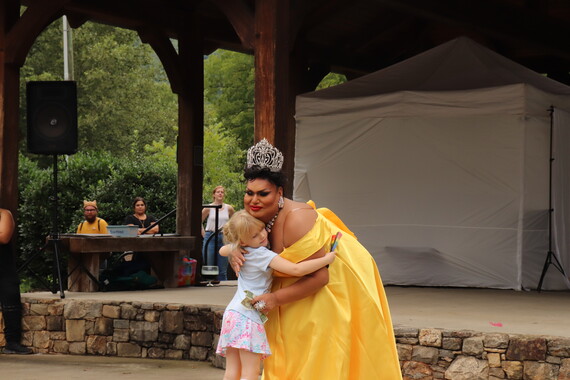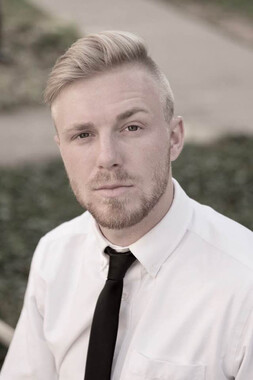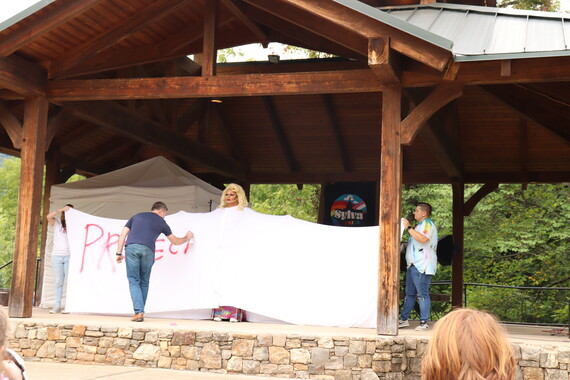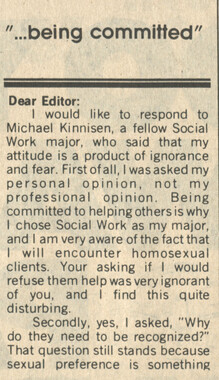Western Carolina University (20)
View all
- Canton Champion Fibre Company (2308)
- Cherokee Traditions (292)
- Civil War in Southern Appalachia (165)
- Craft Revival (1942)
- Great Smoky Mountains - A Park for America (2766)
- Highlights from Western Carolina University (430)
- Horace Kephart (941)
- Journeys Through Jackson (154)
- LGBTQIA+ Archive of Jackson County (85)
- Oral Histories of Western North Carolina (314)
- Picturing Appalachia (6772)
- Stories of Mountain Folk (413)
- Travel Western North Carolina (160)
- Western Carolina University Fine Art Museum Vitreograph Collection (129)
- Western Carolina University Herbarium (92)
- Western Carolina University: Making Memories (708)
- Western Carolina University Publications (2283)
- Western Carolina University Restricted Electronic Theses and Dissertations (146)
- Western North Carolina Regional Maps (71)
- World War II in Southern Appalachia (131)
University of North Carolina Asheville (6)
View all
- 1950s (1)
- 1960s (1)
- 1970s (4)
- 1980s (50)
- 1990s (10)
- 2000s (12)
- 2010s (19)
- 2020s (30)
- 1600s (0)
- 1700s (0)
- 1800s (0)
- 1810s (0)
- 1820s (0)
- 1830s (0)
- 1840s (0)
- 1850s (0)
- 1860s (0)
- 1870s (0)
- 1880s (0)
- 1890s (0)
- 1900s (0)
- 1910s (0)
- 1920s (0)
- 1930s (0)
- 1940s (0)
- Buncombe County (N.C.) (1)
- Jackson County (N.C.) (84)
- Appalachian Region, Southern (0)
- Asheville (N.C.) (0)
- Avery County (N.C.) (0)
- Blount County (Tenn.) (0)
- Cherokee County (N.C.) (0)
- Clay County (N.C.) (0)
- Graham County (N.C.) (0)
- Great Smoky Mountains National Park (N.C. and Tenn.) (0)
- Haywood County (N.C.) (0)
- Henderson County (N.C.) (0)
- Knox County (Tenn.) (0)
- Knoxville (Tenn.) (0)
- Lake Santeetlah (N.C.) (0)
- Macon County (N.C.) (0)
- Madison County (N.C.) (0)
- McDowell County (N.C.) (0)
- Mitchell County (N.C.) (0)
- Polk County (N.C.) (0)
- Qualla Boundary (0)
- Rutherford County (N.C.) (0)
- Swain County (N.C.) (0)
- Transylvania County (N.C.) (0)
- Watauga County (N.C.) (0)
- Waynesville (N.C.) (0)
- Yancey County (N.C.) (0)
- Clippings (information Artifacts) (46)
- Interviews (25)
- Photographs (23)
- Sound Recordings (21)
- Transcripts (24)
- Video Recordings (physical Artifacts) (4)
- Aerial Photographs (0)
- Aerial Views (0)
- Albums (books) (0)
- Articles (0)
- Artifacts (object Genre) (0)
- Bibliographies (0)
- Biography (general Genre) (0)
- Cards (information Artifacts) (0)
- Crafts (art Genres) (0)
- Depictions (visual Works) (0)
- Design Drawings (0)
- Drawings (visual Works) (0)
- Envelopes (0)
- Facsimiles (reproductions) (0)
- Fiction (general Genre) (0)
- Financial Records (0)
- Fliers (printed Matter) (0)
- Glass Plate Negatives (0)
- Guidebooks (0)
- Internegatives (0)
- Land Surveys (0)
- Letters (correspondence) (0)
- Manuscripts (documents) (0)
- Maps (documents) (0)
- Memorandums (0)
- Minutes (administrative Records) (0)
- Negatives (photographs) (0)
- Newsletters (0)
- Newspapers (0)
- Occupation Currency (0)
- Paintings (visual Works) (0)
- Pen And Ink Drawings (0)
- Periodicals (0)
- Personal Narratives (0)
- Plans (maps) (0)
- Poetry (0)
- Portraits (0)
- Postcards (0)
- Programs (documents) (0)
- Publications (documents) (0)
- Questionnaires (0)
- Scrapbooks (0)
- Sheet Music (0)
- Slides (photographs) (0)
- Songs (musical Compositions) (0)
- Specimens (0)
- Speeches (documents) (0)
- Text Messages (0)
- Tintypes (photographs) (0)
- Vitreographs (0)
- WCU Gender and Sexuality Oral History Project (23)
- A.L. Ensley Collection (0)
- Appalachian Industrial School Records (0)
- Appalachian National Park Association Records (0)
- Axley-Meroney Collection (0)
- Bayard Wootten Photograph Collection (0)
- Bethel Rural Community Organization Collection (0)
- Blumer Collection (0)
- C.W. Slagle Collection (0)
- Canton Area Historical Museum (0)
- Carlos C. Campbell Collection (0)
- Cataloochee History Project (0)
- Cherokee Studies Collection (0)
- Daisy Dame Photograph Album (0)
- Daniel Boone VI Collection (0)
- Doris Ulmann Photograph Collection (0)
- Elizabeth H. Lasley Collection (0)
- Elizabeth Woolworth Szold Fleharty Collection (0)
- Frank Fry Collection (0)
- George Masa Collection (0)
- Gideon Laney Collection (0)
- Hazel Scarborough Collection (0)
- Hiram C. Wilburn Papers (0)
- Historic Photographs Collection (0)
- Horace Kephart Collection (0)
- Humbard Collection (0)
- Hunter and Weaver Families Collection (0)
- I. D. Blumenthal Collection (0)
- Isadora Williams Collection (0)
- Jesse Bryson Stalcup Collection (0)
- Jim Thompson Collection (0)
- John B. Battle Collection (0)
- John C. Campbell Folk School Records (0)
- John Parris Collection (0)
- Judaculla Rock project (0)
- Kelly Bennett Collection (0)
- Love Family Papers (0)
- Major Wiley Parris Civil War Letters (0)
- Map Collection (0)
- McFee-Misemer Civil War Letters (0)
- Mountain Heritage Center Collection (0)
- Norburn - Robertson - Thomson Families Collection (0)
- Pauline Hood Collection (0)
- Pre-Guild Collection (0)
- Qualla Arts and Crafts Mutual Collection (0)
- R.A. Romanes Collection (0)
- Rosser H. Taylor Collection (0)
- Samuel Robert Owens Collection (0)
- Sara Madison Collection (0)
- Sherrill Studio Photo Collection (0)
- Smoky Mountains Hiking Club Collection (0)
- Stories of Mountain Folk - Radio Programs (0)
- The Reporter, Western Carolina University (0)
- Venoy and Elizabeth Reed Collection (0)
- WCU Mountain Heritage Center Oral Histories (0)
- WCU Oral History Collection - Mountain People, Mountain Lives (0)
- WCU Students Newspapers Collection (0)
- Western North Carolina Tomorrow Black Oral History Project (0)
- William Williams Stringfield Collection (0)
- Zebulon Weaver Collection (0)
- College student newspapers and periodicals (44)
- Gender nonconformity (4)
- African Americans (0)
- Appalachian Trail (0)
- Artisans (0)
- Cherokee art (0)
- Cherokee artists -- North Carolina (0)
- Cherokee language (0)
- Cherokee pottery (0)
- Cherokee women (0)
- Church buildings (0)
- Civilian Conservation Corps (U.S.) (0)
- Dams (0)
- Dance (0)
- Education (0)
- Floods (0)
- Folk music (0)
- Forced removal, 1813-1903 (0)
- Forest conservation (0)
- Forests and forestry (0)
- Great Smoky Mountains National Park (N.C. and Tenn.) (0)
- Hunting (0)
- Landscape photography (0)
- Logging (0)
- Maps (0)
- Mines and mineral resources (0)
- North Carolina -- Maps (0)
- Paper industry (0)
- Postcards (0)
- Pottery (0)
- Railroad trains (0)
- Rural electrification -- North Carolina, Western (0)
- School integration -- Southern States (0)
- Segregation -- North Carolina, Western (0)
- Slavery (0)
- Sports (0)
- Storytelling (0)
- Waterfalls -- Great Smoky Mountains (N.C. and Tenn.) (0)
- Weaving -- Appalachian Region, Southern (0)
- Wood-carving -- Appalachian Region, Southern (0)
- World War, 1939-1945 (0)
Interview with Aria Ashburn, transcript
Item
Item’s are ‘child’ level descriptions to ‘parent’ objects, (e.g. one page of a whole book).
-
-
Danny Woomer: And we're recording. Okay. Aria Ashburn: Ah, we're recording. DW: I have an intro. DW: So, today's date is February 18th, 2021. My name is Danny Woomer. I am talking with Aria Ashborne, Ashburn, who was born in, what year? AA: Oh, what year? '94. DW: If you're okay. '94. AA: '94. DW: In? If you're cool with saying where. You don't have to. AA: Oh, where? It's a small town outside of Charlotte called Kannapolis. DW: Again, with this, anything you're comfortable with talking about is perfect for this. AA: What information are you looking for specifically? DW: Oh, I've got questions. AA: Oh, good, good, good. DW: Your pronouns are? AA: She, they. DW: Aria has been living in, I kind of combined Cullowhee/Sylva, it's kind of, they mesh together for me. AA: It's the same thing. DW: If you'd rather say Western Carolina, we can do that as well. AA: So, I've been living here for nine years, now. Almost nine years? Almost nine years. DW: Almost nine years. Cool. So, I've got some questions pulled up. AA: And I'm just now finally learning my way around. Without a GPS. DW: Extremely valid. How would you describe yourself? Gender, race, ability? AA: So, I'm white in terms of race. My gender, I don't know. So, at first, I thought I was bi-gender. And then, I was like, no I guess I'm just a trans-woman. And then a couple of years later I realized that my initial instinct was more right than my second one. I call myself a Gender Queer Trans-woman. I'm a woman, but there are non binary aspects of my identity. I like to describe it like how like a line, obviously. Do you know what a line is, Danny? DW: I do. AA: And on this side is male, and on this side is female. I don't consider this middle space non-binary, I consider everything around the line non-binary. And I'm like connected. I'm like floating out in space, but there's a kite line from female to me. If that makes sense. DW: Like, upper, womanly side? AA: Yeah, I'm floating off in this amalgamous, non-binary space, but there's still a deep connection to being a woman. I don't know if visuals translate very well in interviews, but, we're doing it. DW: I mean, it is a video, so it works, don't worry. So, with, going back to Western Carolina, what brought you to this side of the state being from Kannapolis, which is around, that's like three and a half hours. AA: So, long story short, I didn't get into the college I wanted to. No, I'm kidding. Well, kind of. So, originally I applied to here and NC State, and some shenanigans with my dad, who I haven't spoken to since I was 12 happened. So, State, turned me down and then told me to reapply to turn me down again. So then I came here and, obligatory like, oh, I came here and the mountains were so pretty and I fell in love with them immediately. And then, I don't know, I just graduated and ended up staying, and then, kept applying for more degrees. So, it helps that I'm away from family. DW: We'll get into that, if you want. So, I guess this kind of nulls the question what's kept you here, which is school, I guess. Yeah? AA: Yeah. DW: Make sense. Makes good, makes sense. Let's see. And so, have you built a family or support network here in North Carolina? Or Western Carolina? AA: I like to think so. Well, it's so complicated and hard because in some aspects, yes there are people that are here that I consider a support network, but a lot of them are professors. I've never lived in Sylva. I've always lived in Cullowhee, either around the WCU district. The turnover rate is so high in terms of like, once you've been here 8, 9, 10 years, you see people come and go a lot, because they'll come and then they'll graduate and then they'll go. So, in certain ways, yes I have support systems, but, it's an ever-changing support system. If that make sense? I'd say that the three people who I consider closest to me, besides Sara, or course. Two of them live together in Charlotte because they're partners and then one of them moved to Arizona. DW: Sure. Yeah. AA: Yes, I have a support system, but not all of it is here. DW: Makes sense. So, let me go down to some more. Oh, I just lost it. Where'd it go? There it is. DW: So, if you're comfortable, with talking about it, in both your own journey and with being in Western North Carolina, what was your coming out narrative like? AA: So, my coming out narrative happened entirely in this region. DW: Perfect. AA: Actually it happened on campus. My coming out narrative, my coming out story. I don't know. Do you ever say something and then like 30 seconds later realized, oh, that thing I just said was really dumb? I just did that. DW: Don't worry about it. AA: Okay. Where to start? I guess it should be said, that when I was a kid, of course, stereotypically, I was not like other kids. I liked for my grandma to paint my nails. I had more girlfriends than I had boyfriends, et cetera., et cetera. and I've been telling this story for a long time and the more I tell it and the more I think about it, the more unsure about it I am in terms of where things happened on the timeline. Something happened and I've always contributed it to a particularly bad bullying on the playground because my nails were painted. I don't, human memory is fickle, I don't know if that's the truth or not, that's how I've been telling it. So, I guess that's how I'm going to continue to tell it. But, at that point on the playground, real bad, and after that it was negative reinforcement, I realized, oh, these are the behaviors that people don't want me to do. Which they told me they don't want me to do through their bullying and negative comments and all this stuff. So, I stopped that. And then, my entire life was like, those feelings would return, so I remember, so that happened when I was about five or six. And then when I was going through puberty, you know I would remember going to sleep, pretending, I have a vagina. And I'd been suppressing things for so long at that point, that I was like, eh, everyone probably does this. You know, not talk to anybody about it and sweep it under the bed, and just pretend like it didn't happen. And then by the time I came to Western, I was dating this girl, and she already knew based on my understanding, that I was probably not cis. She went to a nice high school, one of those private schools that were a little more liberal. She had a couple of trans friends, I didn't even know that being trans was a thing. And through our interactions and our discussions, the foundations of who I thought I was had already started to crack a little bit. And then I came here, and it was my second semester of my freshman year. I was taking a class taught by Dr. Hoyt, in the Philosophy Department called, Bioethics and Medical Justice and we talked about trans people. Oops, I just spilled my water. We're good. We talked about trans people in that class for like two or three weeks. And there was a moment where we were watching a documentary, I don't remember what the documentary's name is, about kids who were trans who were like five. Who were like, I'm a girl trapped in boys body or vice versa, and the social barriers that they have to dodge and all of this stuff and I was just like, the lights were going off and dots were connecting and I was like, "Oh, dear, God." And then I kept it to myself for a long time. Sort of, not suppressed it, but I guess it was still a form of suppression. I just didn't tell anybody. DW: Right. AA: And then, I started feeling worse and worse. My grades got worse and worse. And as I was pretending to be whoever or whatever, in the background, at nights, I was reading things about being trans. Not like, academic articles or anything, I would run into a post by a trans person on Tumblr or whatever and I would read it. And there's a lot of going on in the background, and then the very next semester my GPA was a 1.3. Just to show you how bad things had gone. And then finally, the summer before my Senior year, well, in my Junior year I was like I can't keep doing this. I guess it's time. At that point, through reading the posts on the internet, I finally had gotten comfortable enough with the idea of me being trans to start coming out, and then I did. Well, then the summer before my Senior year. I decided to start coming out my Junior year. Summer before my Senior year I came out for the first time to my friend Jessie. Within the first semester of my Senior year, I probably came out to eight people. And then, that's where I stopped. I was like, I'm cool with that for now. I told my friends and that was it. And then when I graduated, I left this area for a couple of months. I went home. And because, of course, I graduated and I didn't know that I wanted to live here. And I was like, "Oh, I'm going to do something about a job." DW: Yeah. AA: And then I went home and I was back in the closet, and I was there for like four or five, maybe six months. And then I was like, "Oh, I can't." Like, telling my mom wasn't on the table at that point. Telling my family wasn't on the table at that point. I was like, "Oh, I can't do this." And yeah, I think, in a lot of ways, going back in the closet was good for me because when I did come, like, after five, six, seven months or however long it was, I don't exactly remember. I was working two jobs, like 80 hours a week, I only had Sunday's off, that time in my life, was like... DW: Oh, you told me about this. AA: ...a long, long, memory of restaurant to Sam's Club to home to restaurant. And I was in the closet in all of those places. And I think going back in was good for me, because when I came back here, I ripped the closet door off on my way out. And I hit campus, and I was immediately like, this is my name, these are my pronouns, whatever. With some hiccups, there are always hiccups. And then eventually, I came out to my family, but I'm assuming you're going to have a question about that, because that's another ten minute story. DW: It is. It is. It's kind of a big one, which is, did you lose friends, family, or just kind of really personal relationships? AA: Yeah. Do you want me to do the family now or would you rather ask a few other questions. How do you want to do this? DW: We can do family now. We've got time. We've got loads of time. AA: Cool. Cool. Cool. DW: Again, whatever you're comfortable with. It's completely up to you. AA: Okay, family. More complicated. Worsened by the fact that it's still like, you know, most people, you come out, they're accepting or they're not. They're not accepting, I guess you're not, you don't interact anymore or whatever. But, most of the time, end of story. Of course, things get a little more complicated with family. So, coming back to when I was 10. There was a moment where I was in Kannapolis, we were sitting at a stoplight, we were the third car in line. If I took you to my hometown, I could drive you to the exact spot in the road, where this happened. We were on the way to my, did I say we were on the way to my grandfather's house? Well, if I didn't DW: Well, you just did. We were on the way to my grandparent's house, I have no idea how we got onto this conversation, I've no idea how this conversation started, I was ten, passenger seat, my two younger brothers, one in which is five years younger than me, the other one is three years younger than me. They were in the backseats. Too young to understand what the fuck my mom's talking about. AA: Am I allowed to swear? I just swore. Sorry. DW: I don't see why not. There have been, I've heard ones where you've, yeah, you're fine, you're good. AA: Cool. Excellent. DW: Shoot for the moon. AA: This story requires some swearing. Anyway, and my mom just said, and of course, at the time, I didn't know why I, and for my entire life, I don't know why this memory was so visceral. And now, it makes so much sense, now. DW: Mm-hmm (affirmative) AA: She said something along the lines of like, "If you ever come home with a boyfriend, you're not my child anymore." She didn't say the word child. I'm using, I'm editorializing the word child to refrain from misgendering myself. DW: Good plan. Good plan. AA: And I don't really remember what happened after that, it's just this weird snapshot of I know where we were, I know what we were doing, I know what she said. I don't know what she said before it. I don't know what she said after it. DW: Understandably so. That's trauma, right? That’s AA: Probably, yeah. Yeah, yeah, yeah. Most people would call that trauma. DW: Yeah. AA: I call it Tuesday. DW: Oh no. AA: But, then I grew up and then I realized that I was queer. And then realized I was trans and, oh, sexuality, that's a whole different discussion. That is also an ongoing story. But I was like, eww. It got to the point where I had been out for so long that I didn't really remember what it was like to be back in the closet until I went home. And it was also, had also been so long that transitioning, like starting hormones was like, a couple months away and I was like, ugh. Changes are going to happen and she's going to notice. I don't, I'm at the point where I don't have any choice but to tell her. I've known for a while, I was going to therapy at this point. And for like, eight months, the only thing we had talked about, and not the only thing, that's an exaggeration. But, consistently coming out to my family, specifically my mom, was a recurring thing that we talked about in our sessions. For like eight months leading up to it, and then it got to the point to where it was like, I'm starting hormones next month. We are out of time. And, so then my therapist and I talked about the ways that we could do it and my mom is not a reasonable human being. She's not necessarily a bad person, I don't think. I think she's very much a victim of how she grew up, and who raised her, and how she was raised. And all of this other, social stuff that we could list for hours and hours and hours and hours and hours because it's wrong with all of us. DW: For sure. AA: Of course. But, she's not very coherent as a human being. In terms of text messages or what she says. She makes logical leaps, that I cannot follow as I probably make logical leaps that other people can't follow. But when she sets her mind on something, that's it. So, I always knew that a conversation where her and I were in the same room or on the phone or over Zoom, that wasn't a thing back then, but, pretend like it was. DW: Might as well. AA: A conversation where her and I were face to face, where I said, "Hey Mom, I'm trans," was never going to work. She's very hot tempered. It would devolve into a screaming match. I'm hot tempered, but less hot tempered than she is. I did not know if I trusted myself to... DW: Kind of stay calm? If she... AA: Yeah. DW: Yeah, yeah. AA: And you know, when you're talking, it's a lot easier to be having a conversation and then 30 minutes later misconstrue what the other person said. DW: Definitely. AA: So, we were like, maybe a letter is the way. So, I wrote a letter. I have it, if you guys are looking to digitize shit. DW: You can bring it down. AA: I can send a copy. I don't mind. DW: I'll make a note of that. AA: It's two pages, single spaced. Times New Roman, 12 point font. Normal other stuff. DW: Yeah. AA: And there are parts of it that, could be better in my opinion. If I had wrote the letter now. You know, of course, five years, four years, four or five years later. DW: How to torment an English grad student. AA: English grad student, biologically my brain has finished developing at this point, at that point, I was still kind of in the oven. DW: À la mode. AA: Because I think human brain cells develop until your 27, 26, 25, something like that. I don't remember the number. You know. And just in terms of coming out, I was pretty confident in coming out then. I'm way more confident in terms of coming out now. It's the kind of thing you do it over, and over, and over again and then you inherently get better. Practice makes perfect. Blah, blah, blah, blah, blah. DW: Right. AA: So, I wrote the letter and then I sent the letter and I paid a shit, like, having it delivered normally was like a $1.25 and I paid like $7.00 for them to text me when the letter got dropped off. DW: It's like so understandable though. AA: So, and it got dropped off on a Wednesday. I think it was June 12th. I have that date somewhere. And the letter got delivered and the entire day, I knew that it would be delivered around that day, so you know, I was already nervous. I had a smartwatch at that point, that has since broke, I think I did 13 or 14 miles worth of laps around campus because there was so much nervous energy I had to do something with it. DW: Yeah. AA: And the letter got delivered at around noon. And then it was, I'm getting, I'm getting anxious just retelling the story. DW: Do you want to skip over, please, yeah. AA: Oh, no, no, no, no. You're fine. I refuse to shy away from this. So, it was 1:00 PM, 2:00 PM, 3:00 PM, 4:00 PM. And I was like, what the fuck is happening? DW: Right. AA: You know, I expected a phone call as soon as the letter got there. DW: Yeah. AA: And then, finally it got to a point of where, I was like, I'm so hungry. I haven't eaten all day. I've just walked 12 miles. I was like, I've got to eat something. I can no longer. At this point, the need to eat is overriding my emotions saying that I'm too nervous to eat. So I started walking to my apartment and I got about halfway there and then I got a text from my stepdad that said, "Your mom is going to kill herself." I was like, Jesus. I knew that it was going to be bad and over dramatic. I never would have guessed that. Like, that bad. DW: Yeah. AA: So, basically, he and I had this long conversation that ended on something along the lines of, "I raise boys to be men" or something. I'm not really close to my stepdad. I don't like him very much as a person. So it sort of ends there. He refuses to acknowledge it. So, basically, what had happened was my mom had gotten the letter, read it, freaked out, called him, called my brother George, called our friend who is sort of an adopted, not officially adopted, he sort of lives with them, sort of not lives with them, he's my brother's best friend, called Bradley. Demanding did anybody know this was coming? Did anybody know this was happening? Bradley knew I was trans, I'd come out to him during that brief time between living in Cullowhee for the first time and living in Cullowhee the second time after I graduated. Bradley is a bi-sexual man, so I told him. But, I didn't give anybody in the family a heads up that my letter was coming. I told my mom that I was sending her a letter for the LOLs, because I'd never sent a letter before. I was like, "I've never sent a letter. I'm going to send you a letter." Trying to not raise her alarm bells, but in terms of content, no one knew it was happening. DW: Yeah. AA: So, finally my stepdad got home and my mom declared she was going to kill herself. Turned her phone off and left the house and he just let her. Like, "Okay, go." DW: All right, take the car. Right? AA: Yeah, I don't know, weird. Then, according to her, she went to her church and prayed for three hours. It's the version of the story that I got. So then, finally around 9:00 PM, she called me. And we had a 45 minute conversation which was probably the least productive conversation I've ever had with a human being in my entire life. DW: Oh no. AA: It was a cycle of like biology, religion, but, you are my son, some other fourth thing and we just went in circles around that loop for 45 minutes. DW: Just like that debate that there's no point in having because AA: Yeah. Yeah, yeah. And she would do this thing, where she would be like, biology and then, at this point, I was getting a sociology degree. I was more than halfway through with my program and every major paper I had written for that degree, I'd written about trans issues. DW: Yeah. AA: Partially because, I need to know, I want to know how bad things are for me in terms of society, discrimination and stuff. But also because, of course, it's sort of an academic tradition to study the thing that you are, if that makes sense. AA: So, she was like, biology and I was like, here's a bunch of information that just proves what you just said and then she would switch to religion. And then I was like, here's some Bible verses. Every time I refuted her, she would just change the subject. DW: Yeah. AA: And she said a bunch of things. She said that I should give it time before I transitioned. That God answers prayers in mysterious ways. She told me that my great grandfather, who I loved very much, was an abusive alcoholic after World War II. And then, his wife, my great grandmother, the one who used to paint my nails, she prayed for 20 years before he stopped being an alcoholic and beating her and abusing their children. Which was information that I did not know and did not want and did not need. DW: Yeah. AA: And eventually, it turned into a non-fiction piece that I think maybe has a chance of being published. We'll see. She told me that my Uncle Jeremiah, who I call Uncle Chubbermiah, just to tell you everything about him. He used to have drug problems and was about to be in jail for a long time, and then God finally answered his prayers and got him clean. And, all of this information about here's all the reasons why you should wait to transition and all of this stuff. And then the phone call ended. My biggest regret, in terms of that conversation, and this is just the kind of thing, you have an argument and then hours later, you're like, "Ah, this would have been the perfect reply." And like, maybe it would have been, maybe it wouldn't have been. This was like a real moment where I was like, "Ah, that would have been a perfect reply." My mom wanted a daughter, like so bad, that it was killing her. To the point to where, she's told all of my friends who ever met her afterwards, "Ah, man, I wish I." Here are dead name's baby pictures. My baby pictures. I wish I had a daughter. My friend Jessie, who is the first person I came out to, my friend CJ, she told both of them that she wishes she had a daughter. And I've known that. She's told me that several times. The perfect response would have been like, "Well how do you know that this isn't God answering your prayers 25 years later?" DW: That's so good. AA: That would have been fucking great. I didn't do it. I didn't think of that. DW: That would have been so good. AA: For six months afterwards, everything would be fine for a month and then we'd have the same argument. And then we would be fine for a month. And then we would have the same argument. And now it's gotten to the point to where, she's called me by the right name like three times, four times, maybe. She sometimes genders me, well, she's never gendered me correctly, but she's called me her daughter several times. For Christmas, she got me a little necklace with a little metal ring on it. And the ring says, "My best friend. My best daughter." Or something like that. DW: Okay, that's AA: She buying me women's clothes. She bought me this shirt. DW: Which is good. AA: Which is a lot more purple on camera than it is in real life, it's more of a red. DW: Yeah. AA: But, like... DW: It's effort. That's progress if anything. AA: We're getting there. The problem is, my stepdad. She won't even talk about me being trans in his presence because he had a fucked up childhood and the only way he processes emotions is through anger. DW: That'll do it. AA: I'm thinking we're at a point to where it's as good as it's going to get until he is not in the picture, but that's a.... DW: Whole other thing. That's a... AA: Can of worms. And yeah, I would like to say that that is where my coming out story ends, but of course it isn't. I come out like every other day or something. DW: So, to kind of follow with that, and, yeah, to give you a sip of water, I think this is a pretty good follow up. Did the reality of in just coming out, fit your expectations or was it different? I mean, obviously, it's always going to be different than what you expect, that's just kind of, society. But, what were you expecting and what ended up? AA: I don't know what I was expecting. So, okay, the first time, I came out to Jessie. It was a three day process. So the way that I came out to Jessie, I knew exactly what day I was going to do it. Because we had, we were doing a thing. Pokémon is a thing, that people are aware of. It is now officially in the archives, because it is inherently tied to my coming out story. AA: We were both playing the same Pokémon game on different consoles and we were doing this thing called a Solely Challenge, which is basically the TLDR, is you enforce rules that are not in the game to make your life, to make the game more difficult. But you do it with a partner, so what happens in one game, effects what happens in the other person's game. DW: Oh, interesting. AA: Yeah, for example one of the rules are is if the Pokémon faints, it's dead, you can't use it anymore. Well, that Pokémon has a partner and if one Pokémon faints in one game, the partner in the other game is also no longer usable, for example, et cetera., et cetera., et cetera. That's not the point. So I knew we that we were going to do that for a couple of hours, so I got some coconut rum and some coke and we started drinking at 10:00 AM. And then, we drank the whole bottle that day, but around noon, when we were like three or four drinks in, I was like, "Hey." And we had like a three hour, while still playing, we had a three hour conversation about it. He was a psychology major. And he'd taken a lot of soc classes, so he knew what being trans was. But I told him that I was bi-gender and then I switched back and forth and you know, all this other stuff. And you know, we had a long conversation about it. Basically, it boiled down to, you are who you are. I still love you. But, I didn't end up telling him my preferred name until like a day later. We didn't get into my sexuality until like a day later. Three days later, we were still, I was like, "Oh there's this detail that I forgot to mention." Or, "Oh, my preferred pronouns are this." Or, you know, all this other stuff. And then, after that, I started to get a lot faster in terms of, it went from taking three days to an hour to 30 minutes to 15 minutes. But, in terms of, I didn't really go in with any, the only expectation that I went into coming out with, was that I was going to get rejected 100 percent of the time, every time. Because that's just how my brain works, unfortunately. But, now, I'm at the point to where I just do it. I think it's a lot easier to come out to somebody who doesn't know you than it is to somebody who is, who already does know you. Because then you have to get into, when you are coming out to somebody who does know you, they already have history, they already have knowledge of who you are. So then you have to be like, well, I'm not a man, I'm a woman. My name isn't this, it's that. My pronouns aren’t these, it's that. I have titties now. As opposed to coming up to somebody that you don't know, it's literally just my name is Aria, and my pronouns are she, they. DW: Yeah. AA: That's all that they need to know. If that makes sense. I don't know if that answers your question. DW: It does. It does. And kind of, this is sort of on topic, not really. It's fitting with the, you'll see, kind of with the experience. I think your perspective is so interesting because you've seen how Western has changed, how this region has really changed in the past, since seven years. And just sort of, how has the Queer community here kind of evolved? If you've observed much. AA: Let me think. DW: I think, mostly cause AA: Okay, so I think, that's a hard question. Well, is it a hard question? I don't know. DW: It's a little vague. It's a little vague. AA: Well, no, so okay, so here's. I think that's a hard question to answer and, I'm going to take a crack at it, but, but it's difficult because, from my perspective, the Queer community is a lot bigger. But, I think that's because when I first came out, I was the only openly queer person in my friend group. And I was the only openly queer person I knew IRL. And then this phenomenon happens and I don't have a name for this phenomenon, but the more that you come out, the more connections you make within the community, to the point to where, the longer that you're queer, the more queer people you know. And the more queer people you know, the more that you are soaked into that culture. But, it's like, once you're soaked into that culture, you can't look at it from the outside. So, in terms of how the Queer community has changed, I think that in terms of Western, it's a lot more open than it used to be. But, now this goes to my overall, ultimate point, but of course I think that is how it is, because before, I would just meet somebody and they'd be like, "Hi my name is, Tim Tom." And I'd be like, "Cool, your name is Tim Tom. My name is, dead name." You know, whatever. Now it's like, "Hi, my name is Aria, I go by she/they." And Tim Tom will be like, "Cool, my name is Tim Tom. I'm gay as fuck." As you come out, you build those connections, so it seems like things are more open, even though maybe they're not necessarily. If that makes sense. DW: It does. No, it does. AA: And you know, Western has made steps to make it more open. You know, with the name change. Not the name change, the nickname. What is it? The preferred name system that they've implemented that I have very strong feelings about, but we can get into them in a minute if you want, they're not positive feelings. But like they have queer support groups and now there's a Queer Club on campus. So, Western has definitely made an attempt to keep things more open. So, it's hard to say exactly how much of it is my perspective from inside the Queen community or how much of it is an actual change. I'm going to stop rambling. DW: You're fine. I am curious about your thoughts on the preferred name change, because you can see that it's like they're trying, kind of. What I'm curious about, your thoughts, just because you've again, you've seen this school change from a really interesting perspective. AA: I think that the system in and of itself is a good idea, but I think that the implementation of it has been, quite frankly, shitty. Just in terms of, I always start talking about rhetoric, and it's going to make a lot of people in the English department very happy. But, I don't know if it's useful for this interview. DW: Ha. Go for it. AA: The way that the preferred name system is framed, I think is inherently flawed, because from my understanding, the way that it works is, let's say that you're talking to somebody in financial aid. Or somebody at One Stop, rest in peace, always be with you, or whatever. One Stop's not a thing anymore, it's something else. DW: Yeah, something. AA: Hey, I have this problem with this thing, and they will be like, "Cool, what's your 920 number?" And you'd be like, "My 920 number is 920111111." And they'd be like, "Cool." And then the thing pops up on the screen and it says your name, and then down here it says your preferred name. AA: And like, 50 percent of university employees don't look at that. And they're like, "Oh cool, dead name. Hi, hello." And I'm like, "No, that's…" AA: And from a rhetorical design perspective, the university is still emphasizing your legal name. That's what a lot of people use, does that make sense? DW: Yes. AA: And like so, a really good example of this, and I hate. I'm not going to name any names because I'm not trying to like throw anyone under the bus, this person didn't mean to do it, but somebody, first semester, my first year in grad school, I was living on campus, because I'm poor, to answer that question. DW: Mood. AA: I wasn't sure if throwing my loans at rent would be enough to cover it, and it turns out it would have and I didn't have to live on campus at all. But, I lived on campus anyway. Which was weird as a 26 year old grad student who just got done living on their own for four years. Suddenly living in a dorm again was a bad idea, but I did it. And, my RA, put my dead name, you know how RAs will do the door decorations and it will have everybody's name on it. My RA put my dead name on my door dec. Even though, there's a preferred name system and then they quit, because they didn't like being RA. And then a new RA come in, in January and put my dead name on my door again. So, I think that in terms of how the system works, I think that the system needs to be tweaked so that it emphasizes the preferred name a little more. But, I also think part of the problem with the implementation is that the university was like, "Cool, we have a preferred name system." And then they didn't do any kind of training or training video or any kind of like, here's the procedure for how to refer to students guidelines for people at the University to read. From my perspective it seems like they were just like, we have a preferred name system, and then half of the employees don't use it and as far as I know there's no way to hold those employees accountable for not using it. Does that make sense? DW: It does. AA: And you know, there's no pronoun system to go with the name system, so even if, let's say that 50 percent of University employees used the preferred name, only about 20 percent of that 50 percent is cognizant enough to go, "Oh, what are your pronouns?" DW: Right. AA: So, even in situations where they are calling you by the right name, they could be calling you by the right name, but misgendering you at the same time. And I don't know who to tell about this. DW: Now, now it's digitized. Now it's… AA: Yeah, now it's digitized in the archives. DW: You have the idea, the idea is in there. Is there anything you'd really like to tell that I haven't mentioned yet? That you'd like archived for the Western North Carolina…? AA: If I were to, if I were to be able to say anything and it put in the archive for people to read, I would say, experiment, I guess. I think that there's a lot of, like pressure. And this is pressure that I, myself, early on in my coming out and realizing that I'm trans, and figuring out my sexuality, there's this like, pressure that we all put on ourselves to know your label. Know what you are. And I want to put on record that, that's fucking bullshit. Like, experiment, if you get your label wrong, that's fine. I went from bi-gender to trans to gender Queer trans. Two years from now I'm going to be gender Queer hyper, whatever. First all, you change. Labels change. And even if you don't change, you still get the label wrong, that's fine. Like, play around with labels. Don't have labels. Do whatever you want. Which leads me to my second point, in like, I wish that people would stop participating in Queer discourse on the internet. It's dumb. It's always dumb. Somebody always has a bad take that you're going to disagree with. One person's experience in being Queer is different from everybody else's experience in being Queer. So, Queer discourse on the internet doesn't matter. And one of the most heavily discord aspects is labeling. You know, every other week, I see somebody. I see people arguing about, and this is controversial, and I don't have opinions on it, but there's always a fight going on about whether or not you can be a bi-sexual lesbian. Like, if that exists. And, my take on it, is who cares? If you are happy calling yourself a bi-sexual lesbian, then like, just do that. It's fine. Words are made up. We made them up. We determined what they mean. And I think it's so damaging in terms of like, I'm going to call them baby Queers. But people who are just coming out. People who are younger. People who are like, 13, 14, 15, being like, "Ah, I'm figuring out that I'm not straight. I'm not cis and I'm trying to come up with what a label is." And then they see these people on the internet, who you know, even if you're trying to read critically, you're like, when you read something on the internet, you assume that the person knows what they're talking about most of the time. AA: Most of us don't stop to think what are these person's credentials, et cetera., et cetera., they watch these people fighting on the internet and they're letting it dictate how they see being Queer, which then perpetuates the discourse. DW: Right. AA: And it makes people feel bad about themselves and bad about their labels. And another really good example is the debate between bi-sexuality and pan-sexuality. You know. The idea that they're the same thing, whether or not they're the same thing, doesn't matter. What matters is, if you as an individual think that the pansexual label fits you better than the bisexual label then just use the pansexual label. AA: And if somebody says being pansexual isn't real, just ignore them. Like, who cares? DW: Very cool. AA: That was kind of a ramble, but DW: No. That's, again, thoughts are what we want, I think. Experiences. So, that gives us about 45 minutes. Any last remarks? AA: Be gay. Do crimes. Down with Capitalism. The very last words. DW: Sounds good. I'm pretty sure the recording ends when I hit end. Is that true? AA: I have no idea. DW: Well, let's find out.
Object
Object’s are ‘parent’ level descriptions to ‘children’ items, (e.g. a book with pages).
-
Aria Ashburn calls herself a gender queer trans-woman with non-binary aspects of her identity, but also discusses the importance of not worrying too much about labels. She talks about being bullied and suppressing her feelings as a child and about coming out while an undergrad at Western Carolina University. She shares her experience returning home after graduation and how it felt to go back in the closet and how it led to a stronger coming out experience when she returned to Western to pursue her Master's degree. She talks about the process of making the difficult decision to come out to her family and about her mother's reaction and their relationship now. Ashburn discusses the flaws in the preferred name system at Western.
-
